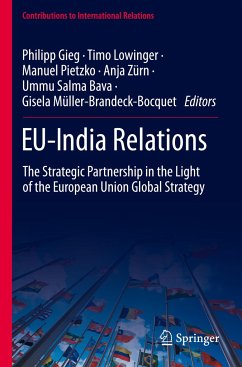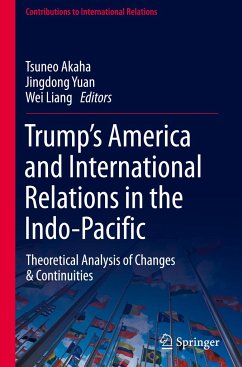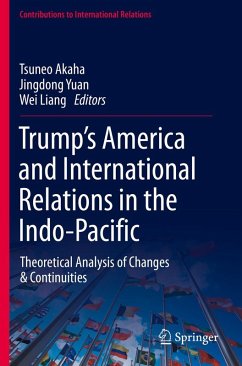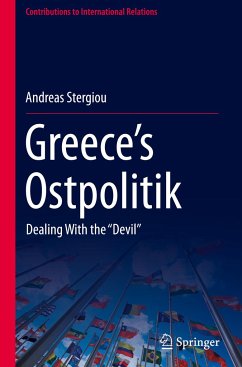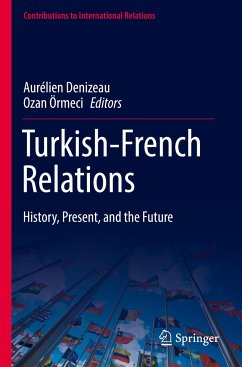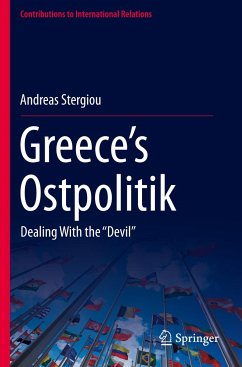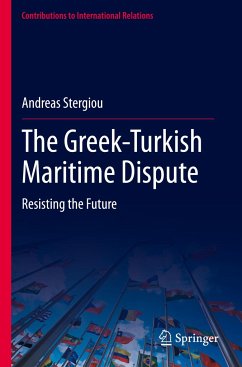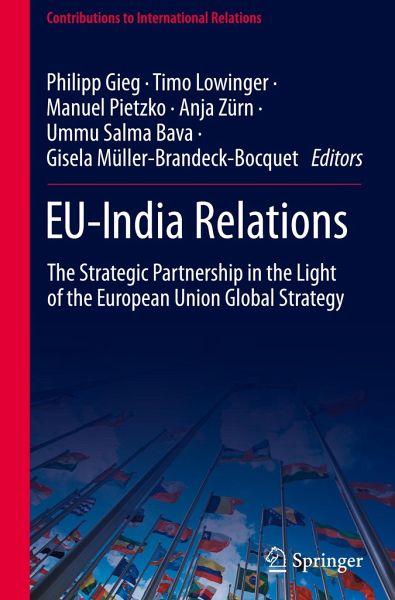
EU-India Relations
The Strategic Partnership in the Light of the European Union Global Strategy
Herausgegeben: Gieg, Philipp; Lowinger, Timo; Pietzko, Manuel; Zürn, Anja; Bava, Ummu Salma; Müller-Brandeck-Bocquet, Gisela

PAYBACK Punkte
49 °P sammeln!
India and the European Union bear a particular responsibility: as international relations change, not least because of the global COVID-19 pandemic, the two largest democracies in the world have the unique potential to jointly demonstrate that trusting cooperation and mutual understanding are both indispensable and fruitful-all the more so in the context of increasing national egoism and disregard for the fundamental principles of multilateralism.This realisation is not new. Believing in the necessity and mutual benefit of close cooperation, India and the EU struck a strategic partnership in 2...
India and the European Union bear a particular responsibility: as international relations change, not least because of the global COVID-19 pandemic, the two largest democracies in the world have the unique potential to jointly demonstrate that trusting cooperation and mutual understanding are both indispensable and fruitful-all the more so in the context of increasing national egoism and disregard for the fundamental principles of multilateralism.
This realisation is not new. Believing in the necessity and mutual benefit of close cooperation, India and the EU struck a strategic partnership in 2004. But resounding success in forging closer bilateral ties and promoting an inclusive, rules-based global order has proved elusive. Since 2016, however, the EU's Global Strategy has offered new opportunities for a restart of European foreign policy, envisaging new partnerships and recalibrating existing ones. On India's part, too, changing stances have presented new openings-withNew Delhi criticising protectionism and calling for a strengthening of multilateralism.
This timely book scrutinises the status quo and the future potential of revitalised EU-India relations. By exploring and analysing conceptual approaches to and key dimensions of the strategic partnership, including trade, climate policy and development cooperation, it evaluates the prospects for future cooperation. Lastly, it offers policy recommendations for advancing the partnership between India and the EU.
This realisation is not new. Believing in the necessity and mutual benefit of close cooperation, India and the EU struck a strategic partnership in 2004. But resounding success in forging closer bilateral ties and promoting an inclusive, rules-based global order has proved elusive. Since 2016, however, the EU's Global Strategy has offered new opportunities for a restart of European foreign policy, envisaging new partnerships and recalibrating existing ones. On India's part, too, changing stances have presented new openings-withNew Delhi criticising protectionism and calling for a strengthening of multilateralism.
This timely book scrutinises the status quo and the future potential of revitalised EU-India relations. By exploring and analysing conceptual approaches to and key dimensions of the strategic partnership, including trade, climate policy and development cooperation, it evaluates the prospects for future cooperation. Lastly, it offers policy recommendations for advancing the partnership between India and the EU.



